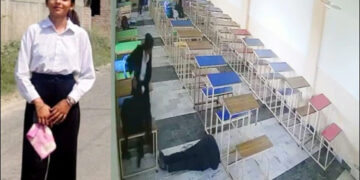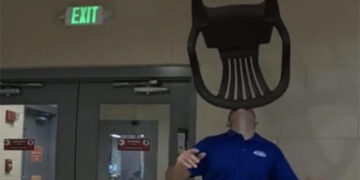Khairpur : A Two-Day Workshop was organized by the Department of Economics, Shah Abdul Latif University, Khairpur on the topic “Political Economy of Pakistan: Policy Imperatives” . Prof. Dr. Khalil Ahmed Ibupoto, Vice Chancellor presided over the inaugural session of the first day of workshop while Prof. Dr. Abdul Saboor, Dean Faculty of Social Sciences, Pir Mahar Ali Shah Arid Agriculture University, Rawalpindi was the keynote speaker.
Speaking on this occasion, Prof. Dr. Khalil Ahmed Ibupoto said economics is a prime discipline because we have direct connection with the economic activities. With the help of the proper planning, the economy of country could be beefed up, as result, country would be self sufficient. Dr. Ibupoto stressed the students that in the advent of knowledge based economy, to concentrate on online business to earn and support their families. The Vice Chancellor shed light on the governance of the University. He said we are trying to curtail the financial deficit with drastic economic measures. He appreciated the efforts of Prof. Dr. Muhammad Saleem Rahpoto, Chairman Department for organizing this important workshop.
Prof. Dr. Abdul Saboor said political economy is important economic discipline directly related with the masses. He said holistic approach is needed in revival of economic policy practice based on inclusive practice, innovative and integrative approaches are important imperative. Dr. Saboor said solution oriented policies may also be adopted to focus on challenging issues. He said macro level ways and means of economics transformation from traditional to modern may be adopted. He said we have to improve monitory policy and measures may be taken in order to maintain balance of payment and trade. He also suggested to control inflation and unemployment from the country. He remarked we have best practices of tax governance. It is imperative to control the law and order to boost the economy.
Prof. Dr. Taj Muhammad Lashari, Dean Faculty of Social Sciences said that we must concentrate on good governance, accountability and transparency so the economic activities may be flourish properly. He said there is need of proper planning and concept of development in the social sector so the state economy may be developed in progress and right direction.
Prof. Dr. Akhtiar Ali Ghumro, Director Institute of Commerce & Management said that steps may be taken from the government side to reclaim the arid areas i.e. Kacho, Thar, Thal and other areas of arid zone because there is immense potential for agri product and business. He said human resource is also important factor of economic activities which may be trained.
Prof. Dr. Muhammad Saleem Rahpoto accorded vote of thanks to the Vice Chancellor, guest speakers and participants. He also shared the academic activities of the Department.
Ms. Tooba Shafaq conducted the proceeding of the inaugural session. A large number of teachers, scholars and students attended the workshop.
The second day workshop was held on “Moral Foundation of Education” was conducted by Prof. Dr. Abdul Saboor. He said that there is moral degradation in our society, so it is the reason we need to make our education system morally strengthened. This is only possible if the education system is revisited on moral lines by enhancing the thinking of faculty of you. We need to develop passion for learning among the students. They need to be trained both in soft and hard terms by spiritualizing their strength. They need to capitalize their potential by activating their soul or spirit. This can be done by developing positive thinking among the youth.
Prof. Dr. Muhammad Saleem Rahpoto also shed light on the topic. He said moral education is a part of civic education which is promoting the sense of civilized society based on mutual respect. He also appreciated the efforts of the Vice Chancellor Prof. Dr. Khalil Ahmed Ibupoto for providing a viable platform for the youth at campus and also accorded special thanks to Prof. Dr. Abdul Saboor who spared his precious time.
A large number of teachers and students attended the workshop.



















